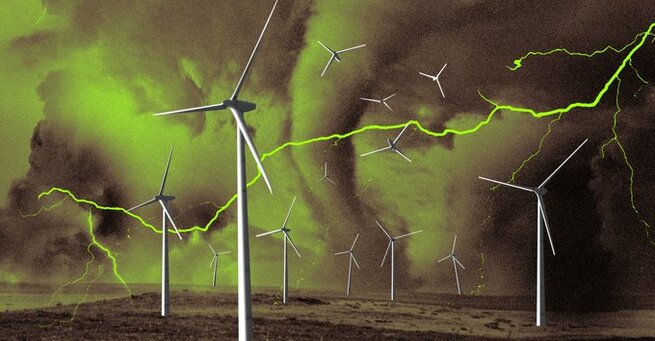
Clean Energy Tax Credits at Risk: How a New GOP Bill Could Cost America Over Half a Million Jobs
Looking for what happens if clean energy tax credits are repealed? Wondering how the Trump-backed spending bill might impact solar, wind, and battery manufacturing jobs? The stakes are higher than ever. The Inflation Reduction Act (IRA) spurred a renewable energy manufacturing boom across the United States—especially in Republican districts—but now, that progress is on the chopping block. Over 575,000 clean energy jobs and $86 billion in annual economic output are at risk as Congress debates repealing green energy tax credits in favor of a sweeping rollback tied to Donald Trump’s “big, beautiful” spending bill. This policy shift could unravel the largest federal investment in clean energy in U.S. history.
Since the IRA was passed in August 2022, renewable energy companies have launched or expanded 250 manufacturing facilities across the country. These plants—producing solar panels, wind turbines, and energy storage batteries—have not only helped lower emissions but also generated high-paying jobs in economically vulnerable areas. According to the American Clean Power Association (ACP), if these projects reach full capacity by 2030, they will employ more than half a million Americans and contribute billions to the national economy.
But a draft bill from the GOP-led House Ways and Means Committee proposes slashing the 45X advanced manufacturing tax credit and other clean energy incentives. These incentives are precisely what helped position the U.S. to compete globally, especially against countries like China that dominate solar manufacturing.
Ironically, Republican districts stand to suffer the most from repealing these tax incentives. Red states currently house 73% of the active renewable manufacturing projects, and clean energy jobs have already created 122,000 full-time roles, with solar manufacturing alone employing over 75,000 people.
This move would disproportionately affect rural and conservative communities that have become unlikely beneficiaries of Biden-era clean energy policies. Slashing incentives now could leave workers in those areas scrambling, just as factories were preparing to ramp up production and hiring.
According to the U.S. Energy Information Administration, solar power accounted for 81% of all added electricity capacity in 2024, making it the fastest-growing energy source. Solar costs have plummeted over the past two decades, and utility-scale solar is now the cheapest source of electricity in many parts of the world.
The IRA aimed to onshore solar production, countering dependency on Chinese imports linked to human rights violations in regions like Xinjiang. The law catalyzed a 190% increase in U.S. solar module manufacturing capacity in just one year. Removing the financial incentives now would halt that progress and leave supply chains once again vulnerable.
Removing these federal tax credits doesn’t just kill jobs—it risks America’s global competitiveness. China has long led the world in clean energy production, especially in battery and solar module manufacturing. Without strong incentives, U.S. companies may struggle to scale up or even survive, and the country risks falling further behind in the global renewable energy race.
Domestic clean energy production also plays a vital role in national security and energy independence. Relying on foreign sources for critical energy infrastructure creates vulnerabilities that can be exploited geopolitically. Slashing tax credits would undercut years of strategic investment aimed at solving that problem.
Industry experts are warning that the rollback proposals go beyond routine budget adjustments. MJ Shiao, Vice President of Supply Chain and Manufacturing at the ACP, criticized the legislation, saying:
“The manufacturers that were being supported by these incentives… are getting the rug pulled out from under them.”
The proposal not only phases out existing credits but adds barriers that make it harder for future projects to qualify. This could send a chilling effect across the clean energy industry, leading to paused investments, delayed construction, and widespread layoffs.
Whether you're a worker in a solar panel factory, a homeowner hoping to go green, or an investor in the renewable sector, these proposed cuts could directly impact your wallet. Clean energy jobs are not abstract; they’re happening now—mostly in red states—and they pay well. High-paying manufacturing jobs, reduced utility bills, and greater grid resilience are all benefits that could vanish with the stroke of a pen.
If you live in a community that’s benefited from a new clean energy plant or installation, now’s the time to pay attention. These aren't just climate policies—they're economic lifelines for thousands of families.
Clean energy jobs have become one of the rare bipartisan success stories—until now. By targeting IRA tax credits, Republican lawmakers risk not only economic backlash in their own districts but also a monumental setback in the global fight against climate change.
Trump’s proposal to eliminate these incentives frames them as part of a “green new scam,” but the data tells a different story. The clean energy boom has lowered costs, created jobs, and boosted GDP. Repealing these benefits now would be a strategic misstep, both economically and environmentally.
If the U.S. is serious about leading the future of energy, policymakers must prioritize stability and growth—not ideological rollbacks that put lives, jobs, and climate goals at risk.
𝗦𝗲𝗺𝗮𝘀𝗼𝗰𝗶𝗮𝗹 𝗶𝘀 𝘄𝗵𝗲𝗿𝗲 𝗿𝗲𝗮𝗹 𝗽𝗲𝗼𝗽𝗹𝗲 𝗰𝗼𝗻𝗻𝗲𝗰𝘁, 𝗴𝗿𝗼𝘄, 𝗮𝗻𝗱 𝗯𝗲𝗹𝗼𝗻𝗴. We’re more than just a social platform — from jobs and blogs to events and daily chats, we bring people and ideas together in one simple, meaningful space.